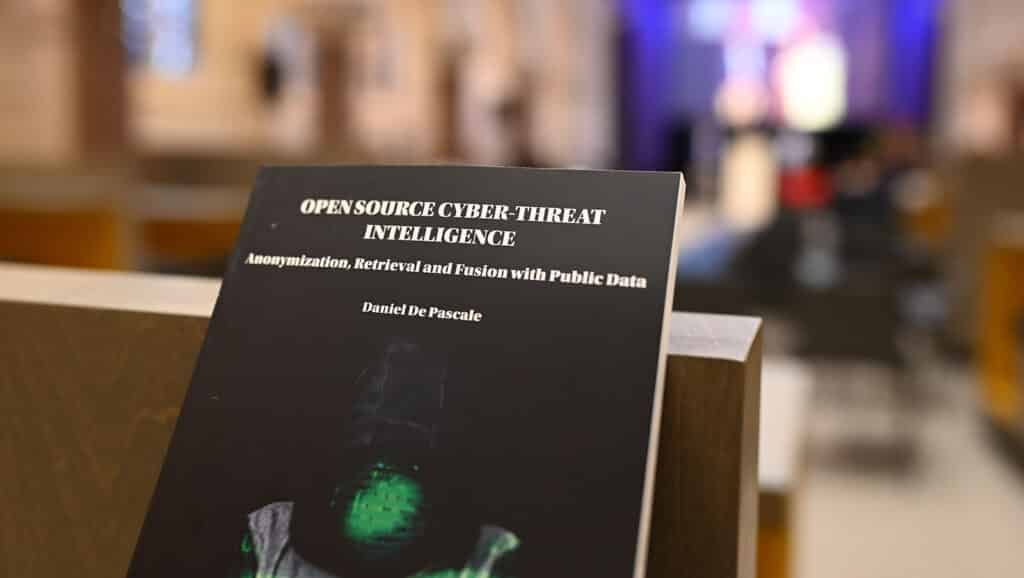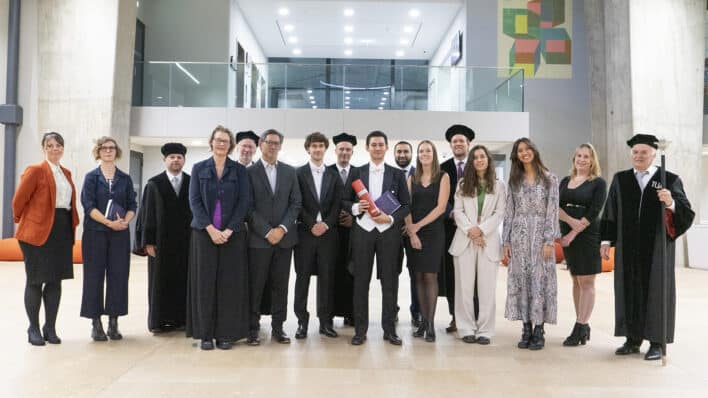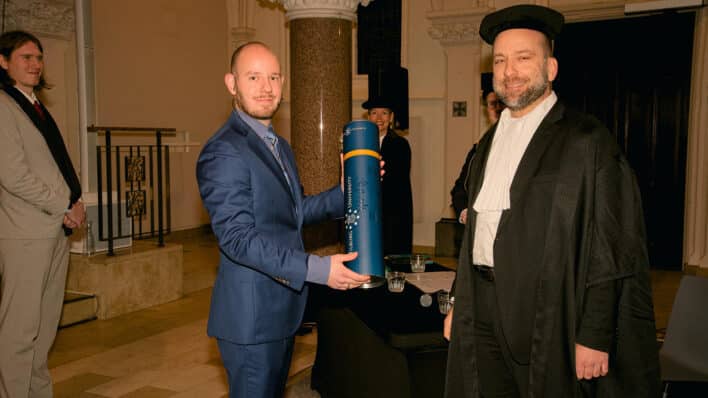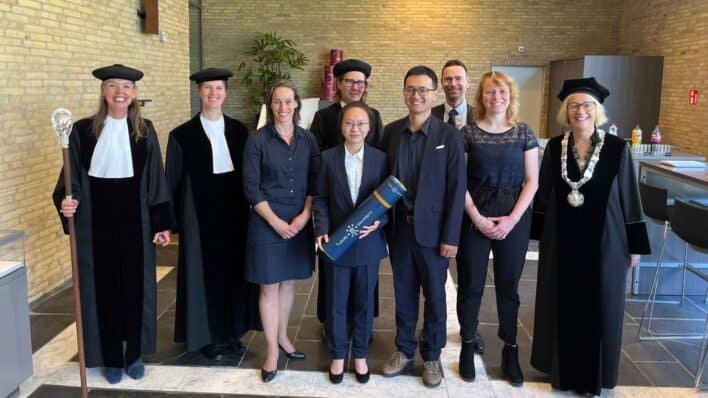From the shadows to the frontlines of cybersecurity
Posted on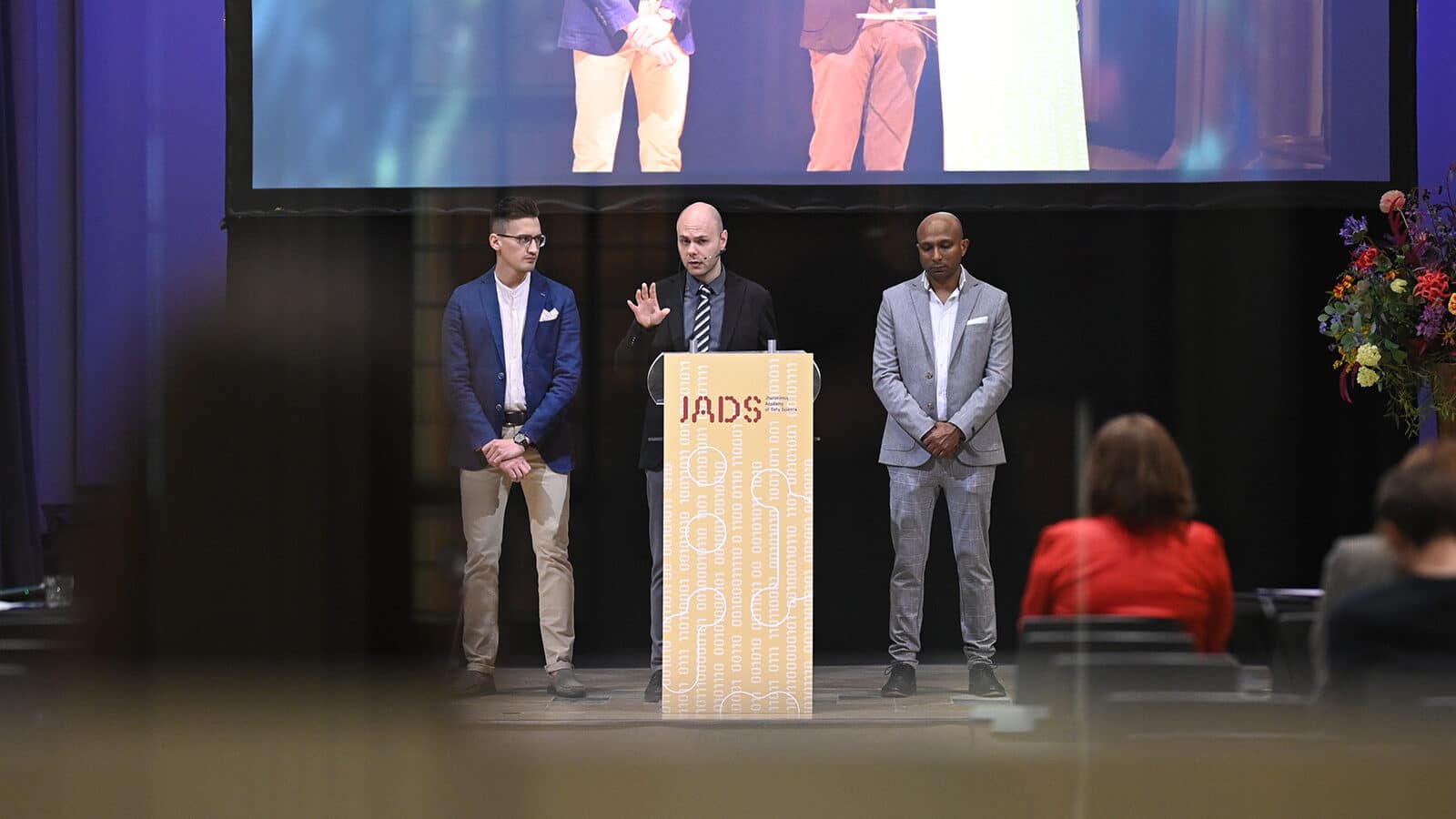
The dark web isn’t just a curiosity. It’s a fast-moving zone where cybercrime thrives, often unchecked. JADS PhD candidate Daniel de Pascale decided to face it head-on. In his PhD research, he takes on the challenge of tracking threats in this hidden corner of the internet, focusing on Open Source Intelligence (OSINT), privacy-first design, and smarter tools for cyber threat detection.
His work stands at the intersection of technology, security, and society. Daniel is building practical solutions for law enforcement and intelligence teams. It’s research with a clear mission: make cyber threat intelligence stronger, faster, and more ethical.
Ahead of his defense on May 6, we spoke with Daniel about what drew him into this field, the challenges he faced, and the concrete ways his research supports better approaches to cyber threat intelligence.
Why did you choose this research subject and what makes it so fascinating?
“I chose to research cybercrime on the dark web because it is a critical and rapidly evolving area that significantly impacts global security and society. The dark web’s anonymity and complexity make it a breeding ground for illicit activities, and understanding these dynamics is important for developing effective countermeasures. The subject is fascinating due to its interdisciplinary nature, combining elements of computer science, criminology, and sociology. It offers unique insights into human behavior and the technological challenges of maintaining security in an increasingly digital world.”
Which challenges did you meet along the way and how did you overcome them?
“The first challenge was related to writing and documenting my findings in a clear and concise manner. I overcame this by dedicating time to improve my writing skills and seeking feedback from peers and mentors. Another significant challenge is teaching. I am still working on it. I am exploring interactive learning techniques and real-world case studies to make the material more engaging and accessible.”
What is the impact of your work in the real world?
“My research aims to assist law enforcement agencies (LEAs) in crime prevention by providing them with valuable insights and tools to monitor and mitigate cybercrime on the dark web. By understanding the strategies and technologies used by cybercriminals, LEAs can develop more effective strategies to disrupt their activities and protect potential victims. My work also contributes to the research community by advancing knowledge in this field and informing policy decisions related to cybersecurity.”
What are your plans after your PhD?
“After completing my PhD, I plan to continue working in academia. I like doing research, and I believe that staying in academia will allow me to continue contributing to the field of cybercrime and cybersecurity. I aim to further my research and collaborate with industry and government partners to address real-world challenges. “
